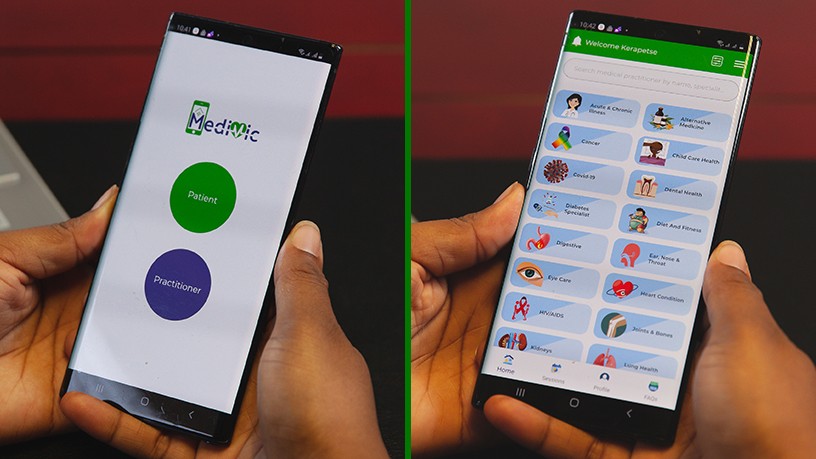MediVic has made its debut in the local telemedicine space. The app has been launched by South African company MediVic Hub, which describes its focus as providing technology solutions to the challenges encountered by the health sector.
It says the app aims to bridge the geographical gap between medical specialists and patients by providing e-consultations at the click of a button.
MediVic Hub CEO Desmond Mahamu explains the app was created in the wake of the COVID-19 global pandemic.
It caters for non-emergency care, offering solutions from telehealth to telecare, remote patient management applications, decision support and evidence-based disease management.
“The global pandemic has altered how we do many things, one of these being how we interact with each other,” says Mahamu. “When it comes to the client-based service industry, the need to not only transform operations to meet safety regulations, but also to rethink the concept behind customer satisfaction, has come under the spotlight.
“At MediVic, we have recognised the need for ground-breaking innovation in light of this and this has subsequently led to the launch of our first medical mobile application.”
Amid the outbreak of the COVID-19 pandemic, the South African healthcare sector has witnessed a significant shift in moving healthcare from the doctor’s office to the patient’s home, with healthcare providers introducing more technologically-driven solutions.
In April, medical industry body the Board of Healthcare Funders welcomed the decision to broadly permit doctors and therapists to use video or phone calls to treat patients. The Health Professions Council of South Africa amended telemedicine guidelines to allow healthcare professionals to use this method during consultations with patients.
Pharmaceutical firms such as Clicks and MediRite are among local clinics that have implemented video-conferencing solutions nationwide.
On the other hand, the South African-developed Signapps telemedicine platform is also digitising SA’s private and public hospitals, through the rollout of its video-conferencing and communication platform across various healthcare facilities, including Charlotte Maxeke, Johannesburg General Academic Hospital, Life Healthcare, Chris Hani Baragwanath, Red Cross Children’s Hospital and Edendale Hospital.
Globally, telemedicine has proved invaluable in the management of the deadly virus, with many governments and healthcare systems advocating digital healthcare tools and virtual consults as the primary means of healthcare support during the COVID-19 outbreak.
In terms of functionality, the MediVic app facilitates conversations via its live chat and video consultation capabilities between patients and doctors.
The e-consultation function enables document sharing, which includes the automatic sending of prescriptions. In addition, patients can choose their desired pharmacy as well as decide between collection or delivery options using the same e-consultation functionality.
The company says data privacy and security are of the highest concern; therefore, patients can be assured all data is secured by the highest encryption standards.
“We created the app with a phased-approach in mind; the current version completes phase one, with phase two set to come at a later stage. The next phase will consist of more features and functionalities, including medical aid payments, pharmacy integration, a self-examination device, Web-based desktop support, digital medical scripts and much more.
“We’re proud to have gotten to this stage and offer a solution that provides convenience to both health practitioners and patients,” states Mahamu.
For patients, MediVic Hub says the app offers safe and secure video-conferencing with a practitioner of your choice, easy appointment booking, subject to practitioner availability, over 20 medical specialties to choose from, a solution for patients in communities where accessing medical facilities tends to be problematic or requires strenuous effort, as well as convenient use.
For healthcare professionals, the company points to added value with access to a wider range of patients, improved job satisfaction and scheduling flexibility among the benefits.
Source: itweb.



